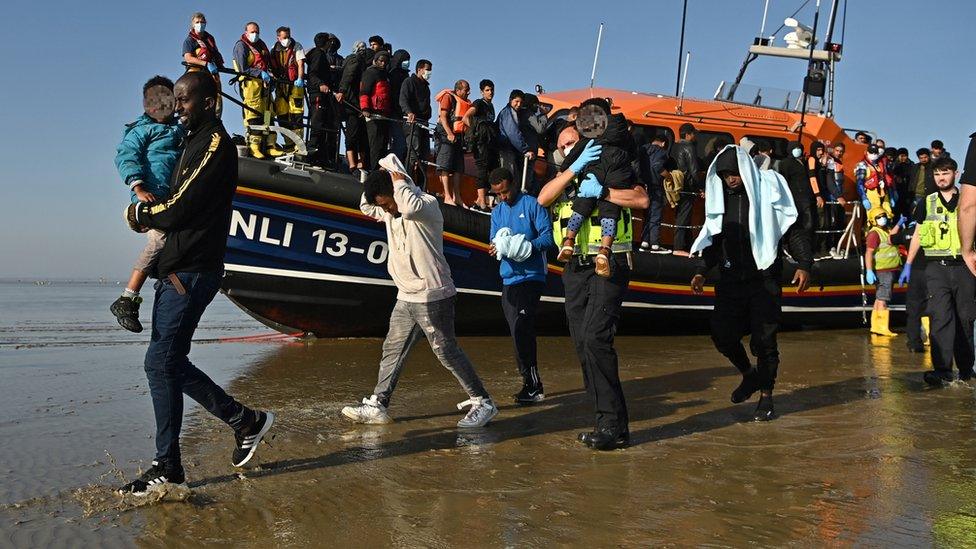Migrant crisis: UK no longer invited to talks with France
- Published
- comments
Why are people making the dangerous crossing of the English Channel in small boats?
France has cancelled talks with the UK after a letter from the Prime Minister Boris Johnson asked the country to take back people who had crossed the English Channel.
The French government says it is disappointed by the letter and that "making it public made it even worse."
The letter was sent by Mr Johnson to French President Macron after a boat carrying migrants sank on Wednesday while trying to reach the UK.
Emergency services responded to the incident, but 27 people died.
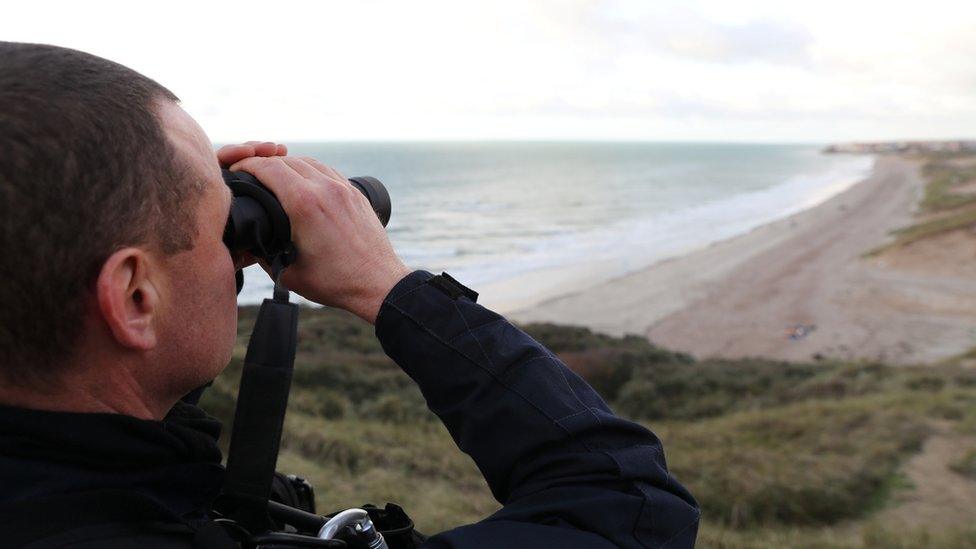
French police watch for migrants attempting to cross the English Channel
What did the letter say?
In the letter, the PM set out five steps to avoid a repeat of the accident.
One of the prime minister's points included: "An agreement with France to take back migrants who cross the Channel through this dangerous route," adding that it "would have an immediate and significant impact" in improving the situation.
But in a statement France's interior minister Gérald Darmanin said: "We consider the British prime minister's public letter unacceptable".
He added that the UK's Home Secretary Priti Patel "is no longer invited," to talks about the crisis.
Belgium, the Netherlands and Germany are among the countries all due to discuss the migrant crisis at a meeting on Sunday in the French city of Calais.
Migrants crossing to the UK from France
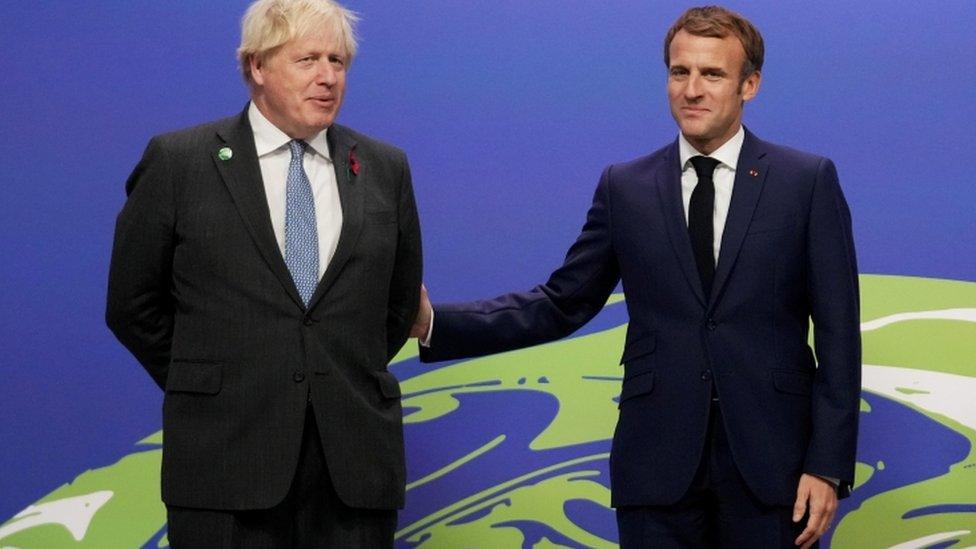
This year has seen a big increase in the number of migrants coming to the UK by boat, compared to last year.
The number of migrants to have reached the UK by boat this year has risen to more than three times the 2020 total. The Home Office said 886 people arrived on Saturday 13 November, bringing the 2021 total to more than 25,700. The figure for last year was 8,469.
In recent weeks and months, politicians in England and France have been arguing over whose job it is to manage migrant boats leaving France for the UK. Each has accused the other of not doing enough.
UK Transport Secretary Grant Shapps defended the Prime Minister's letter, telling the BBC that "friends and neighbours" had to work together.
"No nation can tackle this alone. I hope the French will reconsider. It's in our interests. It's in their interests. It's certainly in the interests of people who are being people trafficked to the UK, with these tragic scenes we're seeing - people losing their lives."
Why is the trip so dangerous?
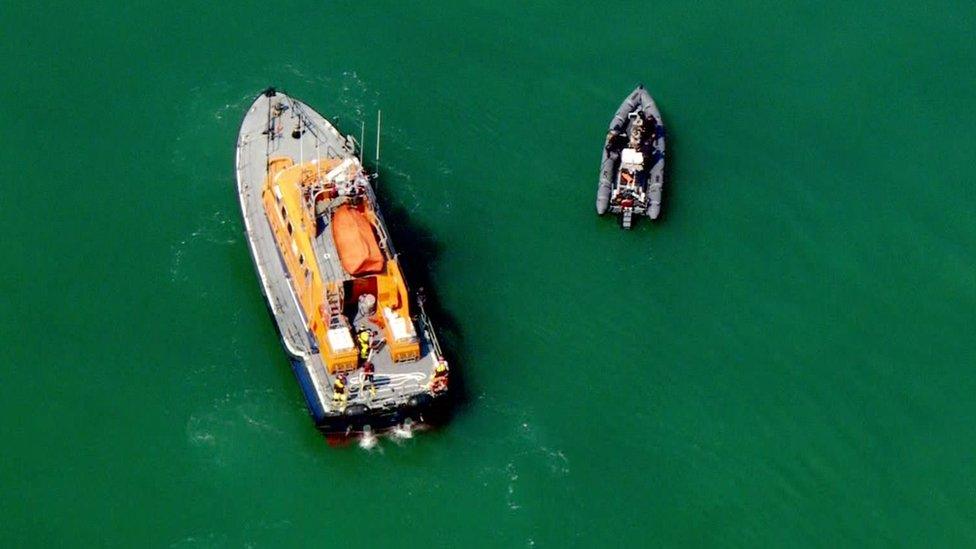
A large lifeboat helping a small boat of migrants
The recent accident is the worst-recorded incident in the Channel since 2014, according to the International Organization for Migration.
Numbers crossing are usually higher in summer months as the weather is better and the seas are calmer, which means travelling seems safer. Travelling by boat can also be seen by migrants as less risky than other options, such as hiding in lorries, containers or trains.
But the journey has always been dangerous. Boats carrying migrants are crossing one of the busiest shipping lanes in the world, meaning there are very large boats travelling in the area.
The boats people are using to cross the water are usually very small and unsafe and the water is very cold.
For several years, criminal gangs have created an entire industry smuggling people to different countries. Families sometimes save up to pay huge amounts of money just to send one relative to Europe.
Mr Johnson and Mr Macron have said they will work to stop these gangs.
Why do migrants make the crossing?
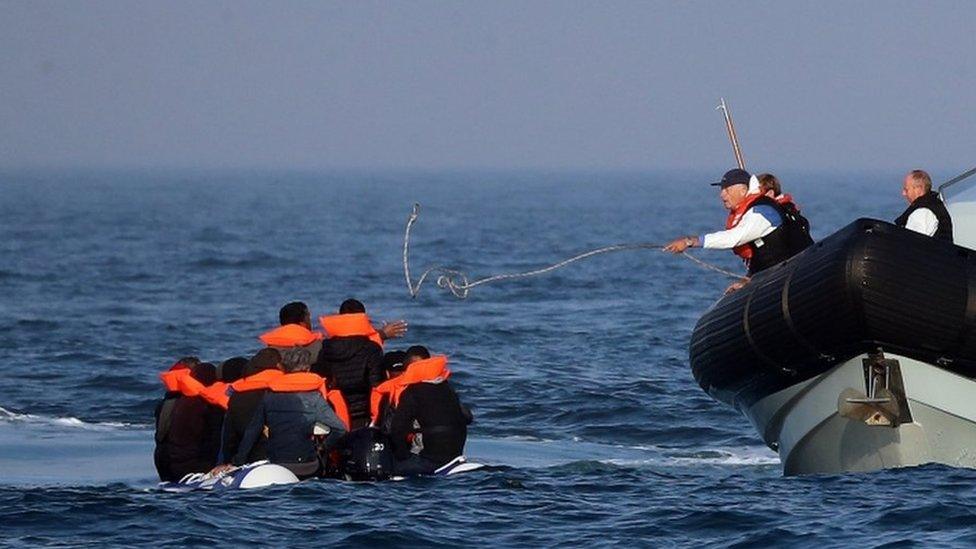
UK Border Force officers help migrants on a dinghy
Migrants who attempt to cross the Channel and get to the UK come from many countries including Syria, Afghanistan and Eritrea.
They attempt the crossing for many reasons, some are from war-torn countries or are treated badly because of their beliefs in their home country. Others have left their country to look for more job opportunities and a better life.
Some want to claim asylum in the UK, which means legally moving to a new country for safety reasons.
These asylum seekers say they are unable to return to their home country because they are scared about the treatment they will receive there.
Lots of migrants also believe there is a better chance of finding work in the UK, which is why they make the dangerous trip. Others have relatives in the UK or speak English and want to use the language.
What happens when migrants are found in the English Channel?
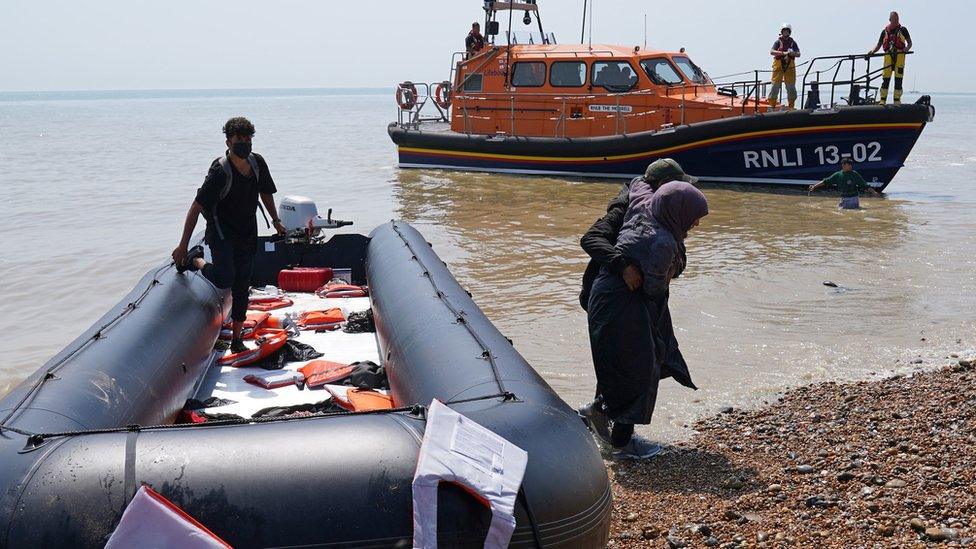
A dinghy's arrival being watched over by the crew of an RNLI lifeboat
If migrants are found in UK national waters they will be brought to a British port. If they are found in French waters they are taken to a French port.
If they are in international waters, the UK will work with French authorities to decide where to take them.
When they are picked up crossing the Channel, they are usually taken by the UK Border Force to short-term holding centres.
If someone makes an asylum claim, and they have no money, they might then be placed in accommodation anywhere in the UK. This is paid for by the UK Home Office while the application is considered.
Others might be kept in detention buildings ahead of a plan to send them back to Europe.
The government are currently looking to strengthen the rules around migration and asylum seekers, hoping to put off people from trying to enter the UK in this way.
However, the UK's plans to stop people entering the country have been criticised by charities including Refugee Action, which has called them "extreme and nasty". Charities are concerned that people in need of help from the United Kingdom may not be able to get it if the country's rules become tougher.
- Published15 November 2021
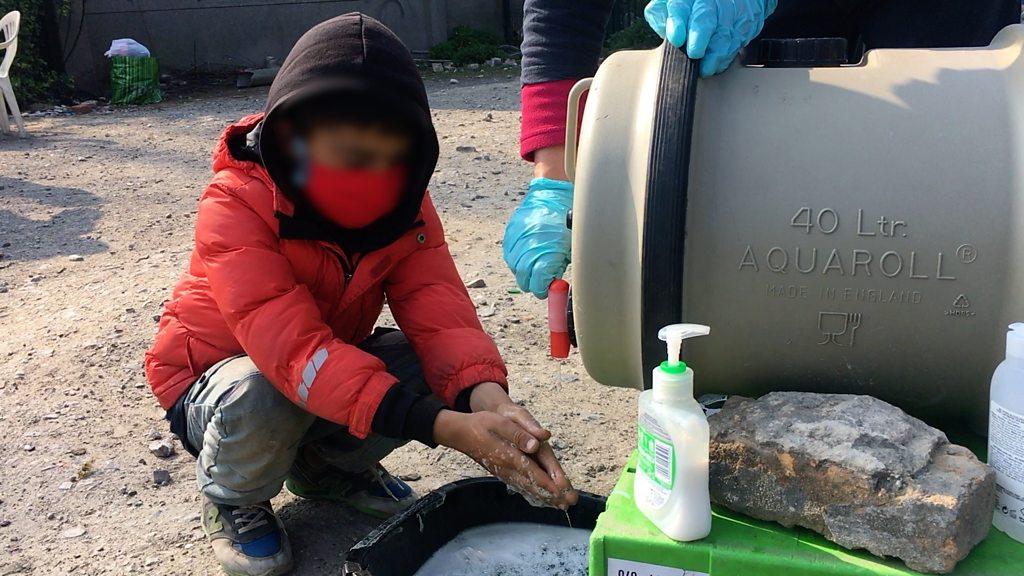
- Published9 September 2021
